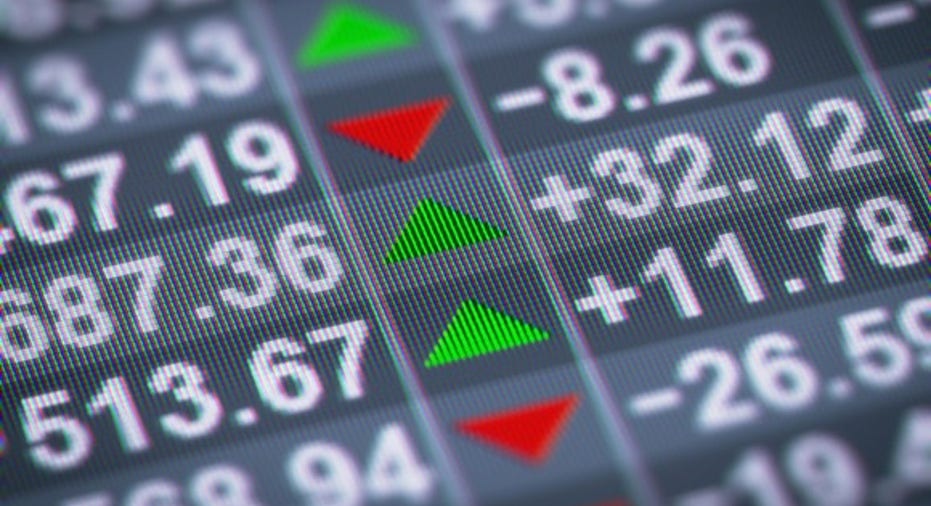Top Online Brokers: Merrill Edge vs. Fidelity

When you're ready to invest, you'll need to open a brokerage account to place orders to buy and sell stocks, ETFs, and mutual funds. Two popular choices, Fidelity and Merrill Edge, offer a number of features that long-term investors can use to make investments inexpensively.
Trading costs and commissions
Fidelity and Merrill Edge both offer competitive trading commissions that enable their investors to buy and sell investments at low prices. Here's how their commission prices compare.
Source: Company websites.
As you can see, the differences in standard commission rates amount to just one dollar for stocks, options, and ETFs. Fidelity and Merrill Edge's rates differ markedly in mutual funds, but they both offer a wide selection of funds that do not carry any transaction fees, which narrows the gap between them.
Commission-free ETFs and NTF Funds
Fidelity and Merrill Edge both maintain a list of funds that are no-transaction-fee (NTF), meaning that the brokerage does not charge a fee to buy or sell.
Source: Company websites.
NTF funds can substantially reduce the cost of trading for investors who use a lot of ETFs and mutual funds as part of their portfolio. Although Merrill Edge does not have any commission-free ETFs, it does offer 30 free trades to investors who maintain a minimum balance with the company. See Fool.com's comparison of special offers for IRAs and ordinary brokerage accounts to see if you qualify for bonuses and incentives.
Account minimums
Fidelity requires a minimum account balance of $2,500 to open a new account. On the other hand, Merrill Edge offers no-minimum accounts, which may be advantageous for investors who want to start small. In either case, minimum initial deposits should not be particularly burdensome to individuals who are serious about investing.
In either case, investors will need to have enough money to buy at least one share of a stock, ETF, or mutual fund to make a trade. Therefore, there are some practical limitations to "no-minimum" accounts.
Trading platform
Much can be said about the trading platform offered by online discount brokers, but we don't have a particularly strong opinion either way. As a long-term investor, The Motley Fool prefers to invest for the long haul in mind, and thus the charting and other features of a trading platform are mostly irrelevant to us.
Fidelity and Merrill Edge both offer trading platforms that can suit the needs of long-term investors. Frankly, it's mostly personal preference, anyway, so we'll let you be the judge on whether the look and feel of a trading platform is important to your process.
As long-term investors, The Motley Fool practices and preaches the virtues of buy-and-hold investing. To us, trading platforms are just a means to an end. Image source: Getty Images.
International stocks and ADRs
Fidelity's clients can trade on international markets in 25 different countries and in 16 currencies. Its customers can also trade American Depositary Receipts (ADRs), which are effectively shares of a foreign stock that trade on American markets. The only downside is that international trading costs more at Fidelity; investors will pay a commission that varies based on the stock market.
Merrill Edge customers can trade ADRs, but it does not allow for trading directly on a foreign stock exchange. Depending on whether or not you want to trade on international markets, this may be more or less important to you.
Research quality and tools
As a general rule of thumb, investors benefit from having access to a wealth of research tools and opinions. Both Fidelity and Merrill Edge give their clients access to third-party research in addition to proprietary research and tools to make better investments. Fidelity offers a complete line of stock and fund screeners, in addition to third-party research from Thomson Reuters and S&P Capital IQ. Merrill Edge customers have similar access to screening tools, in addition to proprietary research from BofA Merrill Lynch Global Research.
Mobile app
Fidelity and Merrill Edge's customers think highly of their mobile apps. Here's how each brokers' users and clients rated their mobile capabilities on iOS and Android (as of 12/05/2016).
Source: Relevant app stores.
Picking a brokerage account for you
Whether you invest in funds or individual stocks, you can find plenty to like about Fidelity and Merrill Edge's low-cost commissions, access to research, and highly rated mobile apps. Truly, long-term investors will find that either broker can meet their most basic needs, and then some.
But to be clear: The Motley Fool does not endorse any particular broker. Visit Fool.com's Broker Center to quickly compare and contrast brokerages by key features like minimum account sizes and commission costs. The Broker Center is frequently updated with special offers from the leading discount brokers, including cash bonuses and commission-free trades for new or transferred IRA accounts.
A secret billion-dollar stock opportunity The world's biggest tech company forgot to show you something, but a few Wall Street analysts and the Fool didn't miss a beat: There's a small company that's powering their brand-new gadgets and the coming revolution in technology. And we think its stock price has nearly unlimited room to run for early in-the-know investors! To be one of them, just click here.



















